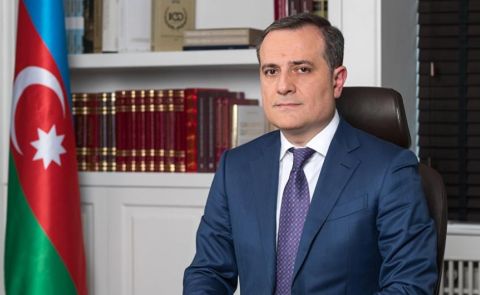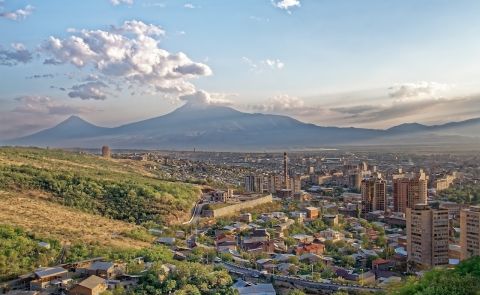
French Interior Minister states that the number of Georgian asylum seekers dropped by 50%

On 22 November, Georgia’s Internal Affairs Minister Vakhtang Gomelauri met with his French counterpart Christophe Castaner in order to strengthen further the law-enforcement cooperation between the two countries. They also met to discuss joint measures and future activities to overcome the challenges of the visa-free regime with the EU, reported georgiatoday.
Amongst the discussed topics was the Administrative Arrangement between the Ministry of Interior of the Republic of France and the Ministry of Internal Affairs of Georgia which was signed in May 2019. They also spoke about the activities undertaken by the Georgian officers deployed to the French Gendarmerie, National Police and Border Police who work side by side with their French colleagues.
"Visa liberalization is a significant achievement for… our country and we spare no efforts to maintain visa-free travel to the EU. I would like to reiterate that integration in the EU is important for our people. We cooperate in the area of migration as well as fight against organized crime that is of concern for France today.
“We have deployed 3 more police officers and we are considering deploying more officers to prevent arrival of [more] asylum seekers [in France]… We remain committed to continuing cooperation with France and I am confident the numbers will decrease through our joint effort,” said Gomelauri.
Castaner summarized the recent developments regarding Georgian asylum seekers in France. “In the first month of this year, Georgia held the first position in numbers of asylum seekers – this was anomaly since Georgia is recognized as a safe country of origin. During the first months of this year, we have registered an extremely large number of asylum seekers that have traveled through visa liberalization. However, 97% of their requests were not satisfied. We have discussed [the] adoption of specific measures of control with the Georgian side, including at the departure and arrival airports. After my visit to Georgia, within the framework of existing cooperation, the number of asylum seekers has been decreased during recent months, by approximately 50%. It is important to maintain this outcome. Our cooperation is also significant in the area of fight against crime and we welcome 3 Georgian police officers in Paris who will be further reinforced by 2 liaison officers that will work together with our departments. I understand that there could be delicacies related to migration, but I would like to state the position of France [will] not endanger the agreement between Georgia and the European Union on visa-free travel. In the framework of this cooperation we have unprecedentedly increased consular staff working on Georgia. I would like to state for all Georgians who intend to travel to France to seek asylum that in frames of our cooperation we will be rather strict and offer asylum only those who truly deserve it,” he said.
Castener visited Georgia on 10 May this year in order to sign an agreement which allowed two Georgian officers to be directly involved in the investigations of crimes in France that may involve Georgian nationals. The signing of this agreement was preceded by a large number of Georgian asylum seekers in the EU, as well as mass detentions of Georgian citizens within the EU who were suspected of criminal activities (Caucasus Watch reported).
See Also


Nordic-Baltic Delegation Meets Armenian Leaders to Discuss Regional Cooperation and Peace

Azerbaijan Strengthens Energy Partnerships with Multiple Countries

BP Strengthens Presence in Azerbaijan’s Offshore Energy Sector

Netanyahu’s Letter to Aliyev: Mutual Trust, Solidarity Following Hamas Attacks, Facilitating Dialogue Between Israel and Türkiye

